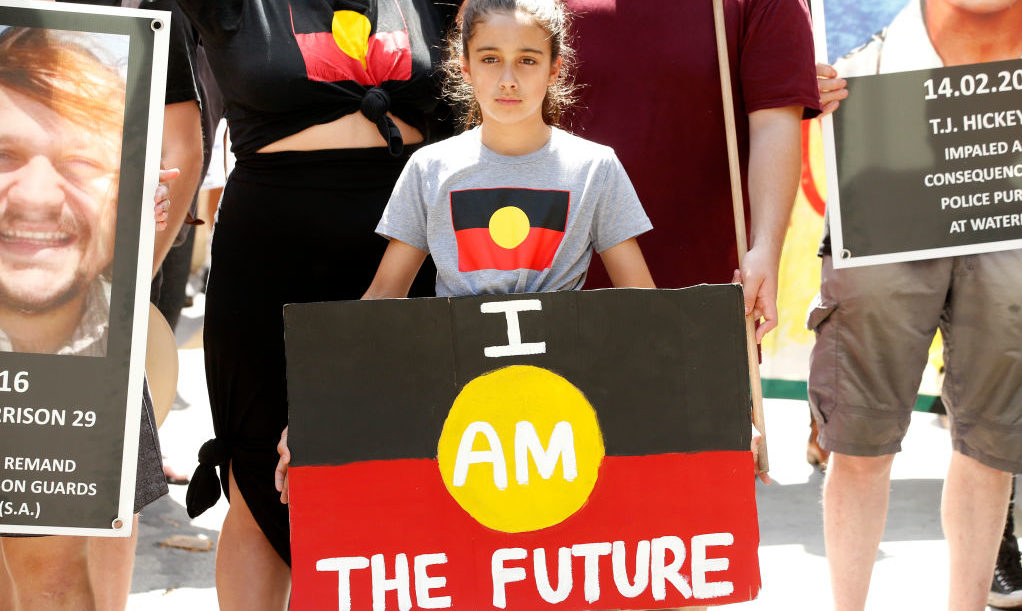
January 26. It’s an important day in our nation’s history, but even if you’re a true-blue proud Aussie, it’s not a day in history that we should be celebrating.
“For me I think it’s a day where I think as a nation we need to acknowledge that we need to learn more about First Nations history, and that history that stretches back 65,000 years,” NAIDOC Week co-chair John Paul Janke told Pedestrian.TV.
At 6am on Sunday January 26, NITV’s John Paul Janke will host a two-hour Sunrise Ceremony from Sydney’s North Head. The event will include a smoking ceremony, along with a panel of Aboriginal and Torres Straight Islander people such as Studio 10’s Narelda Jacobs, who will discuss the issues impacting First Nations communities across the country, and ways to solve these problems.
[jwplayer kJVpUAVv]
“Part of what we do at the Sunrise Ceremony is trying to inform the rest of Australia that this nation we call Australia has a history that goes back 65,000+ years and I want all Australians to be able to celebrate that history beyond just one day,” Janke said.
“The Sunrise Ceremony is a two-hour live broadcast from North Head here in Sydney and for us its an opportunity to show Indigenous perspectives and voices and showcase Aboriginal and Torres Straight Islander culture to the whole of Australia.”
The location at Sydney’s North Head is also particularly significant among Indigenous Australians, symbolising an important moment in Australian history.
“It’s a way of us demonstrating our resilience and our survival and importantly, it comes from North Head. The reason why we chose this location is because on that day as the boats of the first fleet sailed into the harbour, they would’ve seen the Aboriginal people standing on North Head. They would’ve seen the ships, and the people on the boats would’ve seen the smoke and the fires from the traditional people. So it’s really a significant moment for Australia.”
January 26th is a pretty daunting day, whether you’re “celebrating” Australia Day, or attending an Invasion Day protest. If you’re confused about what to do on the 26th, John Paul Janke recommends using it as a reason to educate yourself on First Nations history, however you see fit.
“For me I think it’s up to individuals. I think for a lot of First Nations people, it’s a day that they feel our history is excluded,” Janke said. “I think by more Australians learning about the history of this country and First Nations history, they might come to a point where they find a point of view or they find the narrative that First Nation people are saying and uncover why they’re saying that.”
“People can do whatever they want to do but I think that the more that we learn about all cultures in this country, and in particular that culture that is the oldest continuous culture on the planet, that is First Nations culture, they might come to a different view.”
With all of the discussion around changing (or not changing) the date, Janke voiced that our country has an incredibly long history that all Australians should be able to celebrate and be proud of on a day that is inclusive of all Australians.
“There’s gotta be a day that we can all celebrate and be proud of that doesn’t exclude anyone.”
“There is a bigger history beyond January 26th in this country. And if it’s this date that you reflect on “why don’t I know more about the First People in this country and their history?” and if that challenges you and inspires you to learn more, that’s brilliant.”
“But beyond the 26th, we should do it because if we’ve got the oldest continuous culture on the planet in this country, I really think that’s something that all Australians should be proud of and should celebrate.”
Australia has the oldest continuous culture on the planet, but most of us know next to nothing about Indigenous history. If your knowledge is pretty minimal, you don’t need to beat yourself up over it, because it’s hard to learn this stuff when nobody in your 13 years of schooling tried to teach it to you.
Thankfully, John Paul Janke gave some advice on where to find information if you’re interested in learning more about this important part of Australian history. First and foremost, Janke suggests you should check out NITV.
“We showcase a diverse range of programs about Indigenous people, told by Indigenous people,” he said.
He also suggested reading books written by First Nations people, specifically Dark Emu by Bruce Pascoe and Welcome To Country by Marcia Langton.
The Sunrise Ceremony will be broadcast from 6am on January 26 on NITV, SBS and Channel 10. If you’re in Melbourne, you can also head down to Federation Square to watch it on the big screen.
Whatever you choose to do on January 26, try to be respectful about it.



